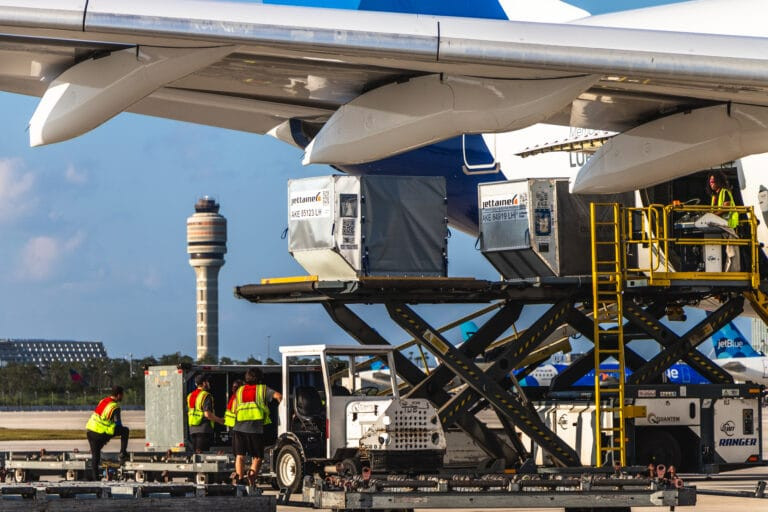The connectivity aspect of airfreight operations is a crucial yet often overlooked component, particularly in terms of intermodality. While some view airfreight as a straightforward airport-to-airport service, it’s essential to recognise that the journey doesn’t end there. The efficiency of the entire supply chain hinges on seamless connections to other forms of transport.
In recent years, there has been a heightened focus on intermodality as customers increasingly consider the entire end-to-end supply chain.
“This shift takes time, as there’s a prevailing mentality that insists on sticking with traditional processes,” Tod Willman, AVP Cargo Development at Orlando International Airport (MCO), stated.
“Shippers are realising that it might be more efficient to truck cargo from a more accessible airport, even if it’s farther away, due to its superior connectivity.
“The larger geography and established practices in the US can lead to slower changes in the supply chain. However, I firmly believe there’s enough business for everyone.
“As we continue to educate shippers about the value that Orlando International Airport (MCO) can offer for their cargo needs, both imports and exports, I am confident we will see our volumes grow.”
Resilient role
As sustainability concerns increasingly dominate the market, MCO is actively collaborating with a diverse array of stakeholders to implement environmentally friendly practices across its operations.
One notable aspect of MCO is its vast landmass, which is larger than that of Los Angeles International, Miami International, and Heathrow combined. This expansive area, once comprised of citrus groves, includes significant water bodies, providing habitats for fish and birds, so the airport is acutely aware of it’s responsibility to preserve this natural beauty as it continues to grow.
“Resiliency is a key component of our strategic programme,” Willman declared. “Our focus extends to all activities and maintenance, ensuring efficient transfers from the fuel farm to the aeroplanes while maintaining robust operations throughout the airport.
“When you solve one problem, you can often create five others. As the airport evolves from its historical roots as a military base, it is essential to adapt to new challenges and implement solutions that account for the complexity of the existing infrastructure.”
In line with its sustainability goals, Orlando International Airport is exploring electrification projects aimed at enhancing operational efficiency. This initiative includes the development of electric connections for vehicles and equipment servicing aircraft. The airport’s focus on electrification is part of a broader strategy to meet the evolving sustainability mandates of its partners while improving overall operational resilience.
“With these initiatives, Orlando International Airport is not just aiming to improve its own environmental footprint but is also setting a standard for airports nationwide, ensuring that the airfreight sector can contribute positively to a more sustainable supply chain.”
Strong position
Florida is a vital gateway between the Americas, serving as a key connective hub for global trade, particularly between Europe and Asia.
While the two major airports in the southeastern United States dominate the landscape, they are currently grappling with severe congestion issues, which hubs like Orlando International Airport hope to capitalise on.
Central Florida is experiencing continued growth in e-commerce, particularly with significant developments like Amazon Prime setting up operations just 20 miles away at Lakeland Airport. “As a result, we expect to see volumes in the region continue to rise,” Willman highlighted.
“However, at Orlando International Airport (MCO), our focus extends beyond just e-commerce growth. While we certainly want to capture that business, we are equally committed to building and retaining locally manufactured products. Our goal is to prevent the leakage of goods to larger hubs.
“We are actively working to build momentum for international routes. Our goal is to establish Orlando as a key departure point, allowing cargo manufactured in Central Florida to save both time and money by flying directly from MCO instead of routing through other major gateways, whether that be to Columbia, Frankfurt, or London.
“To facilitate this transition, we are collaborating closely with freight forwarders, shippers, and airlines to promote the advantages of utilising Orlando for direct shipments.”





